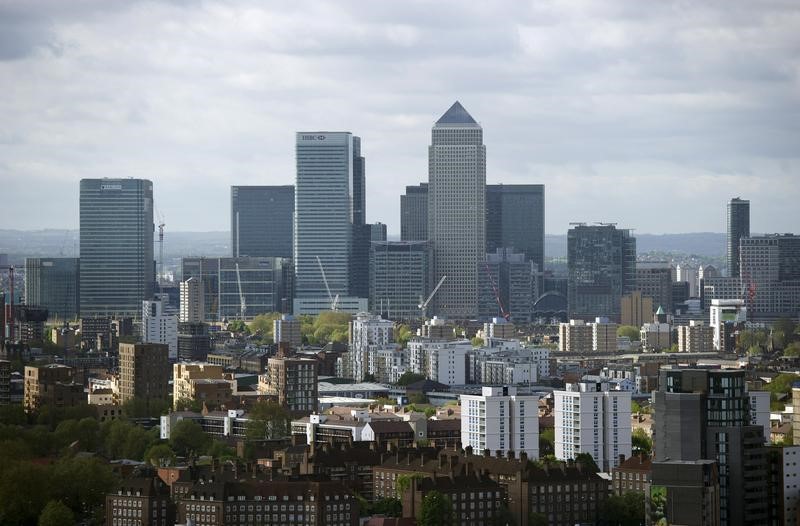By Anjuli Davies
LONDON (Reuters) - Britain has all the right ingredients for an M&A boom, upbeat company bosses, a vibrant economy and a buoyant stock market, but dealmaking is lagging behind the rest of the world.
And for bankers hoping to rake in more fees next year, a looming parliamentary election, creating political uncertainty, could prove a further dampener for big-ticket deals.
This year, a resurgent British economy gave some company boards the confidence to reject takeover offers as too cheap which meant a lot of transactions did not happen.
Globally, M&A has surged to $3.2 trillion year to date, up nearly 50 percent from a year ago and the highest level since 2007, according to Thomson Reuters data.
In Britain, although M&A activity is up compared to 2013, it has been flat for the last five years. Deals totalled $146 billion year-to-date, 62 percent lower than the pre-crisis boom days of 2007 when the value of M&A deals hit $388 billion.
Ten years ago, dealmaking in Britain, Europe's financial hub and home to some of the region's largest companies, made up 37 percent of all M&A in Europe, Middle East and Africa. That figure now stands at just 17 percent.
One of the reasons is that some of this year's deals failed to get off the ground because the robust economic backdrop has given company boards the confidence to spurn bid approaches even with hefty premiums.
Balfour Beatty rejected Carillion's 2.1 billion pound advances and property group Songbird Estates has said a 2.6 billion pound approach from Qatar does not reflect its full value.
"The consistent theme here is high price expectations of sellers, which in a way says there is an good underlying level of confidence," Mark Todd, co-head of M&A at Barclays told Reuters. "UK M&A started out with a bang this year but has to some extent gone backwards more recently."
Early on, 2014 was shaping up as a bumper year. U.S. telecoms giant eyed up Britain's Vodafone in what would have been a 80 billion pound ($125.7 billion) deal, U.S. drugs group Pfizer approached AstraZeneca with a 70 billion pound offer and smaller UK rival Shire came close to being sold to Abbvie for 31 billion pounds.
"In a strange way this might have been the most spectacular year of all time," said one M&A banker, who wished not to be identified. "If one of those big deals had happened, it would've changed everything. But it's not just one or two deals that didn't happen, it's 4,5,6."
Bankers who spoke to Reuters also said despite the weak M&A data, 2014 was busier in Britain than it had been for years in terms of the deals that were made public, plus a host of behind-the-scenes activity.
"From a number of deals perspective the UK has been a bit unlucky in 2014. There's no one easy answer as to why volumes are lower. It's in part bad luck," Simon Mackenzie-Smith, chairman of UK and Ireland Corporate and Investment Banking at Bank of America Merrill Lynch, said.
For next year, M&A bankers are not expecting an easy ride because uncertainty over the election in May could deter companies from putting any takeover plans into action.
The election and the possibility of a referendum on Britain's membership of the European Union should Prime Minister David Cameron be returned to power are weighing on investment bankers' hopes for next year's fees.
"I think the UK elections will deter people buying into UK-based businesses," Mackenzie-Smith said. "They will have to be very sensitive on issues like jobs which will attract a lot of political attention in an election year."
But the threat of rising interest rates in Britain and the United States could yet be a catalyst for buyers, including British purchasers considering acquisitions overseas.
Bankers are also expecting a wave of consolidation in Britain's telecoms sector with BT currently discussing the possible acquisition of British mobile operators O2 or EE
The healthcare sector is also tipped to remain very active as companies look to buy new products for growth as well as the energy sector as oil prices continue to slide.

There were also plenty of smaller, bolt-on acquisitions that gave bankers a solid stream of British business, such as AMEC's purchase of Foster Wheeler and the merger of Dixons and Carphone Warehouse.
(Editing by Carmel Crimmins and Jane Merriman)